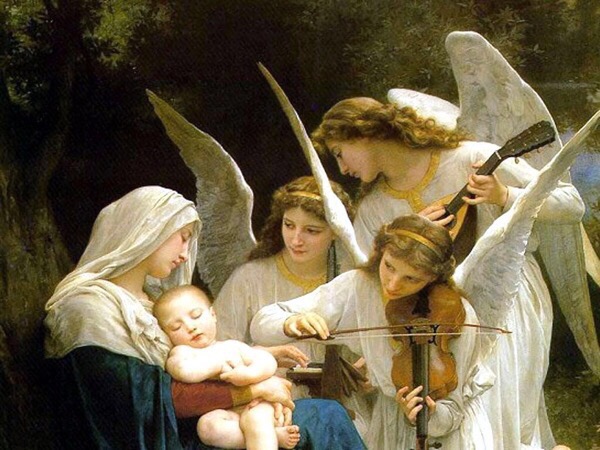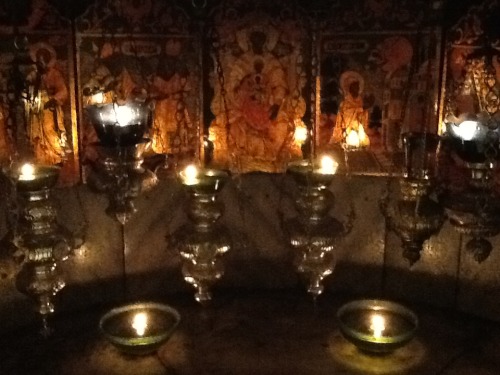
Holy Week is the time to contemplate the Power of Love because as Jesus said, "No greater love has a man than that he lay down his life for a friend." The power of Jesus's love has survived millennia of death and decay. Throughout the last 20 centuries, it has healed some, comforted others, given hope to the despairing and fed and protected many. Nevertheless, it has not died or dissipated. It is as potent today as it was in the 10th century or the fifteenth. Like any valuable thing, the Power of Love is difficult to acquire. It is rare and expensive. It can only be traded for pride and ego. Two items that everyone has too much of and is usually unwilling to relinquish.
My story about when the Power of Love transported me to heaven:
In 1972, while I was on vacation in Greece with my grandmother, I met George Boukis through new friends, Nick and Elly, in my grandmother's village in Mytilene. His father was a shipping magnate and the family lived in Wimbledon Common. George worked in his father's Athens office. The group of friends, of which George was one, and I was a newcomer, went to night clubs in Athens, swam at night, and in general just had fun together. When I returned to the States, George and I corresponded. He invited me to Athens in December when I graduated from college. I accepted. But first, I was to fly to his family home in England for New Year's Eve.
The experience of staying at George's family home was unique. I found myself in a very different world. I had never been to a home with servants. Dinner was served by footmen who passed around platters of food. There were only tiny little covered waste baskets in the bedroom because they were emptied every day. To make one's own bed was against the rules. There were original Renoir paintings and other master artists on exhibit in every room. Silence surrounded Wimbledon Common at night. That was eerie.
The family's social life was less impressive. Their social circle was comprised of similarly wealthy families. Most of their time was spent gossiping about each other. There were many rules of decorum that I had to quickly learn, such as to stand whenever an adult entered the room.
One day several of us went to a department store together. As I was riding the steep escalator, I looked down at the shrinking people below. They seemed to be as mice, and I sensed that only we were men. I was disgusted by that feeling, but I took note of it.
George didn't have a license to drive. When he wanted to go somewhere, he simply called for a car and driver. He hadn't gone to college because he already had a high paying job. He did whatever his parents wanted him to do. I didn't like these traits at all, but he was very kind, innocent, and untarnished. He thought very differently from me, and I was intrigued by the difference.
New Year's Eve at the Savoy Hotel with his family was like going back in time. The decor was dated 1950s, and the sound from the band matched. It was awful.
I left Wimbledon before George and went to Paris since I had never been. I wanted George to come with me, but he had to get back to work. A few days later, he had a car pick me up at the airport in Athens. He took me to his modern upscale apartment by the sea, miles from my cousin's middle class row house in Athens. George's grandmother lived in the same building.
Every day, I dressed up fancy only to sit in the beautiful airy apartment and read as I imagined rich wives with servants did while their husbands were at work. We played house. He would come home and we would dine together and talk into the night. I had my own room, but eventually we merged. The maid reported our sleeping arrangement to the grandmother.
George fell deeply in love with me.
One day, just as I finished reading Screwtape Letters by C.S. Lewis, the grandmother paid me a visit. The book had left me in a particularly mellow state. The grandmother insisted that I leave. I called my cousin and told him I was coming to his house. George was upset, but meek. Soon, I returned to the States and George wrote and called me often. He was beside himself and said he was clutching a single glove I had left behind. I wasn't sure how I felt since I didn't like him all that much. His parents were separating because his father preferred the mistress, and his mother insisted that he have nothing to do with me. Perhaps she wanted her son to feel the desperate pain that her husband inflicted on her. George tried to rebel because he loved me so much. But his mother's power over him was gradually winning.
Back home I got a temporary job to make enough money to fly to Las Vegas to be with my friend who was about to give birth. My job was at the corporate offices of Ginn's office Supply Company downtown. I was to file dirty razor-thin sheets of yellow paper in a tightly stuffed filing cabinet. The job was mindless and painful to my hands.
I was constantly deep in thought about the situation with George who kept professing his love. On one phone call from him, somehow, his mother jumped in. That was strange; had she flown to Athens? She insisted that he hang up.
Every evening after work I read the existentialists Andre Gide and Nietzsche, and I thought and wrote day and night about the meaning of life.
All of this ruminating about my situation with George and life came to a head one day, while standing at my file cabinet. I suddenly concluded that I would will myself to "Love" George. It didn't matter that I didn't respect or like him much, all that mattered was Love, which meant to put all of my opinions aside and devote myself to the concept of Love, which meant to care more about the other, the object of my love, than I cared about myself, my opinions. I willed myself to surrender to the concept of Love, which must involve sacrifice.
I was not a practicing Christian at the time. That came later. On this day it was only about Love.
The very moment I suddenly resolved to surrender myself to Love, while standing at the file cabinet, I was miraculously transported to heaven! I was in a beautiful bright and blue place. I was so very happy, and I wanted to stay there forever. There were no people only a bright baby blue cloudless sky and the happy feeling. Nothing else in the world mattered, only to be able to stay there. I knew that the reason I was allowed there was because of my commitment to Love.
Then, against my will, I returned to Ginn's and my file cabinet, and my sore fingers. Like trying to go back into a morning dream while it was still fresh, I was desperate to return to heaven, but all I could do was to try to remember the place. I attributed the experience to God and thanked Him.
My relationship with George deteriorated. The threats from his mother to disinherit this weak young man, to deplete from him of all that kept him inflated, was more powerful than his passion for me.
As disappointed as I was that my great sacrifice of self was not to be put in effect, I went to Las Vegas to help my friend with her newborn baby, and then joined the Peace Corps and became an art teacher in Sierra Leone. The next opportunity I had to go to Athens and see George, his mother had successfully wiped every ounce of innocence from his soul, the only thing I liked about him.
Years later, I was presented with another young man who adored me, an American who for me was a combination of the four men I had been most fond of in my young life. That was so uncanny that I assumed God had sent him to me to pick-up my commitment to Love where I had left it, at Ginns.
We married and together produced three children. During the next few decades I was given thousands of opportunities to put into practice the concept of surrendering my ego for Love's sake. I failed to reach this height many times, and often had to brush myself off and get up and try again. I never forgot about my visit to heaven. I hope that someday I may return to that beautiful happy place.
Although the commitment to Love let me in, I know now why I couldn't stay. The visit was to be a foretaste. It was given to me to show me the real, ironic, and everlasting Power of Love. The irony of Love is that it requires us to shrink our egos, in order to become great. Like Jesus did on the Cross.
I have since learned that it won't be how much money I earned, or how big my house was, or even how many grandchildren I had, but when the time comes, my credentials for re-admittance to that glorious heaven will be how well I fulfilled my commitment to Love.
I have since learned that Jesus Christ is the perfect model for this commitment to Love, and I am grateful to have such a model to measure myself by and to aspire to.
The power of Love overwhelms evil in all of its ugly forms. It is more powerful than uranium, more powerful than money. It is the only standard of measure for a life well lived. But it almost always comes at that highest cost.
There is no room in this short and fast life for rancor, bitterness, or retaliation. "Let the dead bury the dead" means to allow those who want to spread hostility and bitterness try to destroy each other, but instead turn the other cheek, and pray for them and love them into returning to the land of the living, where the power of Love prevails, and where Jesus emerges from the tomb to take our hands and guide us to that beautiful blue heaven, where we can live happily forever after.




















